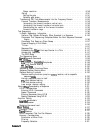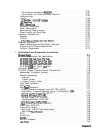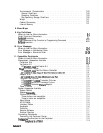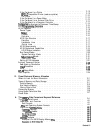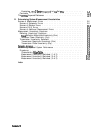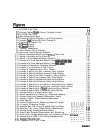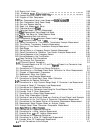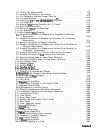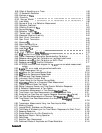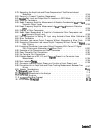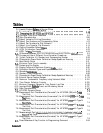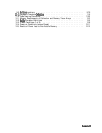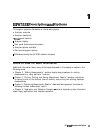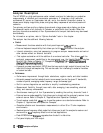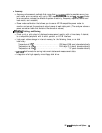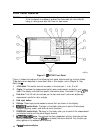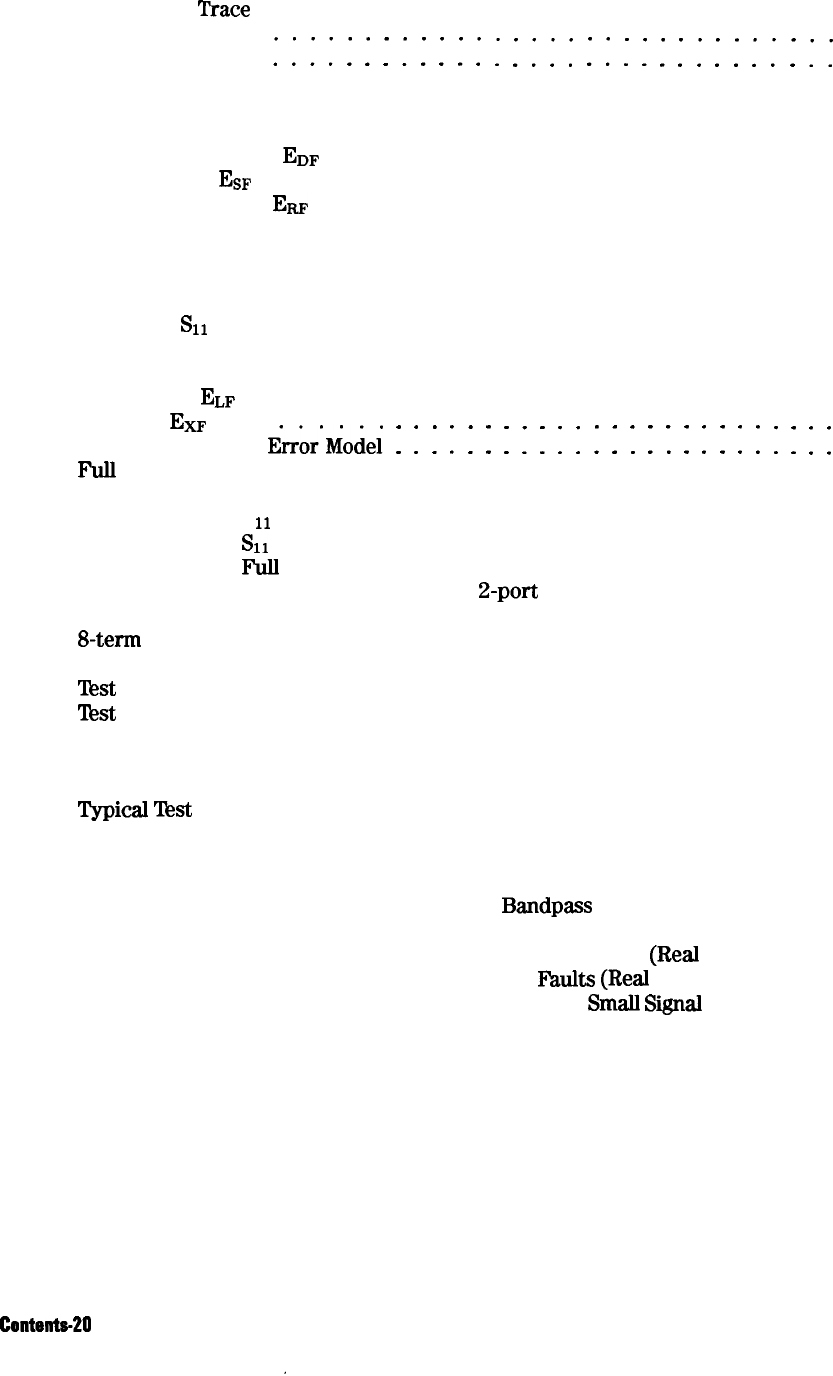
6-26. Effect of Smoothing on a Trace
.......................
6-27. IF Bandwidth Reduction
..........................
6-28. Markers on
Trace
.............................
6-29. Directivity
6-30. Source Match’
1
1
1
:
1
1
1
1
:
:
:
1
1
:
:
1
:
:
:
:
:
:
:
1
:
:
1
1
1
1
1
6-31. Load Match
................................
6-32. Sources of Error in a Reflection Measurement
................
6-33. Reflection Coefficient
...........................
6-34. Effective Directivity
EDF
..........................
6-35. Source Match
Esr
.............................
6-36. Reflection Tracking Em
..........................
6-37. “Perfect Load” Termination
........................
6-38. Measured Effective Directivity
.......................
6-39. Short Circuit Termination
.........................
6-40. Open Circuit Termination
..........................
6-41. Measured
S11
...............................
6-42. Major Sources of Error
...........................
6-43. Transmission Coefficient
..........................
6-44. Load Match
ELF
..............................
6-45. Isolation
Em
6-46. Full Two-Port
Errbr’n;odeI
:
:
:
:
:
:
:
:
:
:
:
:
:
:
:
:
:
:
:
:
:
:
:
:
:
6-47.
FuII
Two-Port Error Model Equations
....................
6-48. Typical Responses of Calibration Standards after Calibration
.........
6-49. Response versus S
11
l-Port Calibration on Log Magnitude Format
.......
6-50. Response versus
Sll
l-Port Calibration on Smith Chart
............
6-51. Response versus
FuII
Two-Port Calibration
.................
6-52. HP 87533 functional block diagram for a 2-port error-corrected measurement
system
.................................
6-53.
8-term
TRL error model and generalized coefficients
.............
6-54. Typical Measurement Set up
........................
6-55.
Test
Setup for Continuous Sample Mode
...................
6-56.
Test
Setup for Sample-and-Sweep Mode
...................
6-57. Alternate and Chop Sweeps Overlaid
....................
6-58. Instrument State Function Block
......................
6-59. Typical Setup for the External Source Mode
.................
6-60.
Typical
Test
Setup for a Frequency Offset Measurement
...........
6-61. Typical Harmonic Mode Test Setup
.....................
6-62. Device Frequency Domain and Time Domain Reflection Responses
......
6-63. A Reflection Measurement of Two Cables
..................
6-64. Transmission Measurement in Time Domain
Bandpass
Mode
.........
6-65. Time Domain Low Pass Measurements of an Unterminated Cable
.......
6-66. Simulated Low Pass Step and Impulse Response Waveforms (Real Format)
...
6-67. Low Pass Step Measurements of Common Cable
FauIts
(Real
Format)
.....
6-68. Time Domain Low Pass Measurement of an Amplifier
SmaII
SiiaI
Transient
Response
...............................
6-69. Transmission Measurements Using Low Pass Impulse Mode
..........
6-70. Masking Example
.............................
6-71. Impulse Width, Sidelobes, and Windowing
..................
6-72. The Effects of Windowing on the Time Domain Responses of a Short Circuit . .
6-73. Response Resolution
............................
6-74. Range Resolution of a Siie Discontinuity
.................
6-75. Sequence of Steps in Gating Operation
...................
6-76. Gate Shape
................................
6-77. Amplifier Gain Measurement
........................
6-78. Combined Effects of Amplitude and Phase Modulation
............
6-52
6-53
6-54
6-58
6-59
6-60
6-61
6-61
6-62
6-62
6-63
6-63
6-64
6-64
6-65
6-66
6-67
6-67
6-68
6-69
6-70
6-71
6-75
6-76
6-77
6-77
6-93
6-94
6-96
6-104
6-105
6-108
6-110
6-118
6-121
6-123
6-126
6-128
6-129
6-131
6-132
6-133
6-134
6-135
6-136
6-136
6-138
6-140
6-140
6-141
6-142
6-143
6-144
Contents-20



